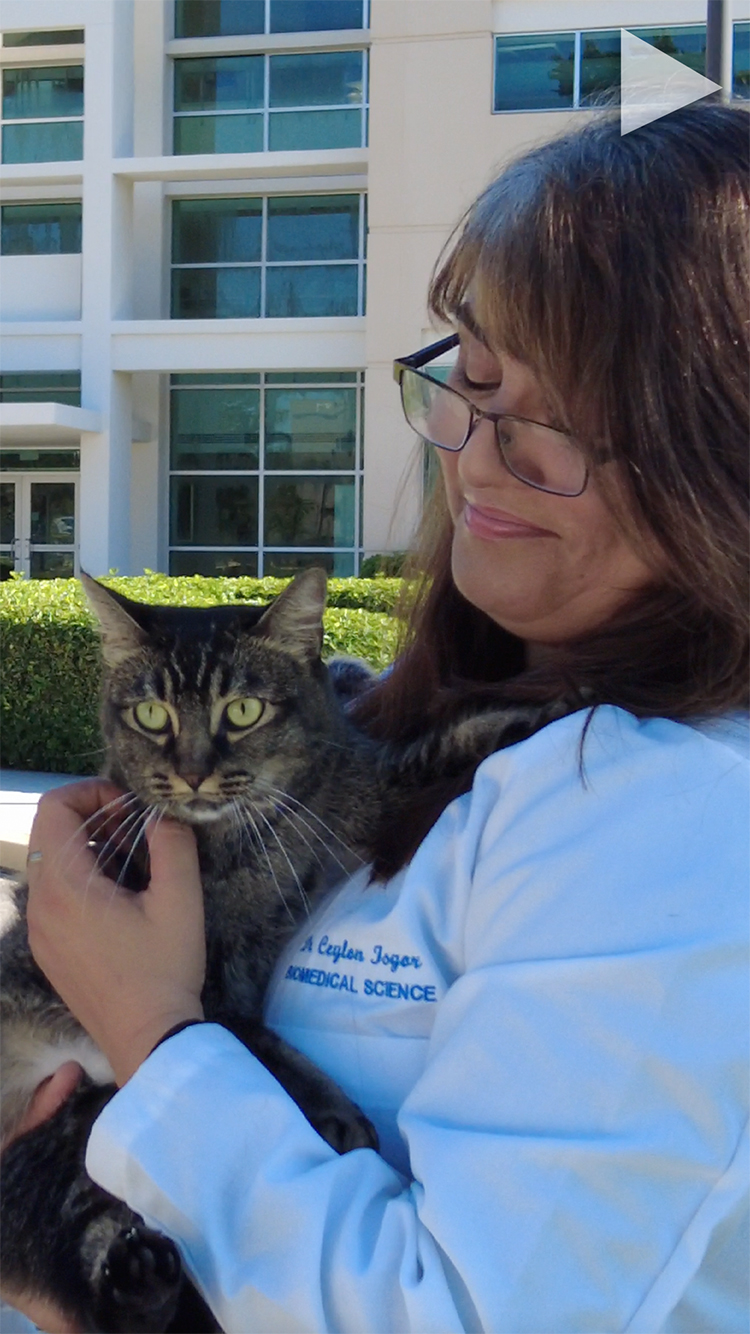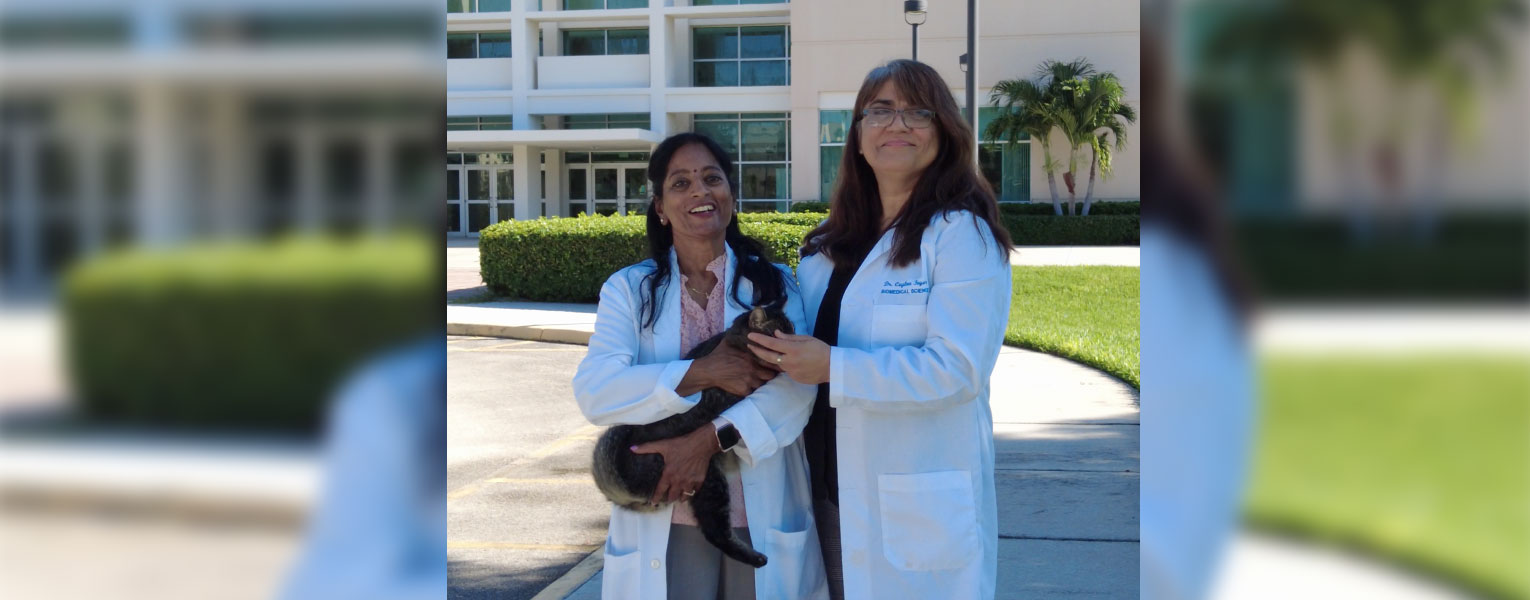11/1/2023
Science in Seconds: Treating Cancer
Researchers Repurposed Drugs to Extend Life
By Bethany Augliere
Vijaya Iragavarapu-Charyulu, Ph.D., and Ceylan Isgor, Ph.D., both faculty in the FAU Charles E. Schmidt College of Medicine, have developed a novel treatment using veterinary medicines to prolong life for end-stage cancer patients.
“Various treatment options are available for early-stage cancer, the options for late-stage cancers are very limited as all the options have been already used with development of resistance to the existing chemotherapeutics,” said Iragavarapu-Charyulu, professor of biomedical science, who has spent two decades studying cancer and how it spreads or metastasizes.
The researchers said they are particularly interested in triple-negative breast cancer, an aggressive cancer with a very low five-year survival rate. “Repurposed veterinary medicines that have fewer side effects could be the next class of drugs for patients suffering from end-stage cancer,” Iragavarapu-Charyulu said.
The antiparasitic drugs work on cancer cells by binding to proteins that form long rods of microtubules, which provide structure to the cell, and play a role in the cell’s movement through the body and proliferation. Once the drug binds to the cell’s surface it degrades it and causes toxicity. “The part that is really interesting about these drugs is that they seem to spare healthy cells, they're attracted to aggressive proliferating ones,” said Isgor, associate professor of biomedical science.
In their novel multi-pronged approach, which the researchers recently filed a patent for, they combined a type of antiparasitic drug called benzimidazoles with microparticles of chitin, a substance found in crab, shrimp and lobster shells that helps support the anti-tumor immune response by creating a healthy gut microbiome. This means they can directly attack the tumor while supporting the immune system and the gut to better combat the cancer at the same time.
Research shows that the gut microbiome is connected to brain chemistry that impacts mood and neurodegenerative conditions, said Isgor, adding she wants to explore how it could also impact cancer resistance.
“Singular therapies, especially in advanced stages of cancer, are not producing desired anti-cancer effects” Isgor said. “Dr VJ and I explore a multi-system treatment option that targets tumors not only directly but also indirectly via distal organs such as the gut that offer options to folks with no options in the current repertoire of therapies.
One of the benefits of this approach to using repurposed drugs, Iragavarapu-Charyulu said, is its affordability, and that means it can be developed faster and cheaper for patients.
If you would like more information, please contact us at dorcommunications@fau.edu.
How Pet Medicine Could Help Cancer Patients

Vijaya Iragavarapu-Charyulu, Ph.D., and Ceylan Isgor, Ph.D.
Charles E. Schmidt College of Medicine
Watch video
